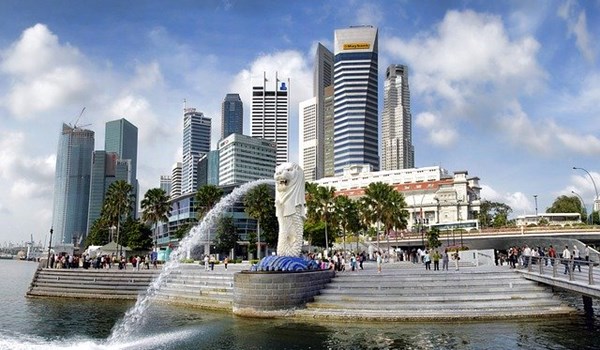Jurisdictions
Regions
Industry Sectors
12/04/22
SINGAPORE: Central Bank Poised to Tighten Policy.

As published on finews.asia, Tuesday 12 April, 2022.
The big question for the Monetary Authority of Singapore this week appears to be not whether it will tighten, but by how much.
In the face of rising inflation, Singapore’s central bank, the Monetary Authority of Singapore (MAS) is widely expected to tighten monetary policy at its meeting Thursday. But analysts vary widely in their predictions of how much tightening will be on the cards, and which tools will be used.
In a recent note, Morgan Stanley pointed to geopolitical tension and China's Covid resurgence as supply and demand shocks increasing risks on growth and inflation. Those are likely to shape the central bank’s thinking on policy.
Earlier this month, Reuters reported all 15 economists it polled were forecasting the MAS would tighten policy. But there was a broad spectrum of opinions on the size and scope of the move, the report said.
The MAS is unusual in that instead of interest rates, it uses the exchange rate for the Singapore dollar to set policy, because of the open and small economy. The policy is set by adjusting the Singapore dollar’s trading band, based on an undisclosed basket of currencies weighted to the countries’ levels of trade with the city-state. The MAS can adjust the mid-point of the band, the size of the band and the slope of the appreciation.
Morgan Stanley explained the slope reflects the MAS’ assessment of the macroeconomic outlook, the midpoint is used to quickly align policy to near-term economic pressure, while widening the band is aimed at dealing with increased volatility and uncertainty.
The central bank has scheduled policy-setting meetings only twice a year, in October and April. In January, it made a rare between-meeting move to tighten policy by slightly raising the appreciation of the policy band, leaving other metrics unchanged. Policy was also tightened at the October 2021 meeting to raise the slope.
This time around, analysts have a wide variety of forecasts. For example, Nomura and Maybank expect only the band’s midpoint to be re-centered, while UOB forecast the appreciation slope to be steepened, with a “material risk” of re-centering. Morgan Stanley forecast the band to be widened and the slope steepened, without re-centering.
Morgan Stanley pointed to the risk of stagflation in its projection.
"A widened policy band allows the central bank to better balance between growth and inflation risks which are skewed in opposite directions," Morgan Stanley said, noting the higher economic and geopolitical uncertainty supports the steepening the slope.
Maybank, however, said the key metrics for the central bank would be inflation pressures and supply bottlenecks.
"Core inflation is rising at the fastest pace in nearly a decade given rising commodity prices, a tight labor market and a demand recovery from the reopening," the Malaysia-based bank said in a recent note with its forecast for a re-centering of the band.
"MAS will likely maintain the current slightly steeper slope, given the worsening growth outlook in the medium term. The Russia-Ukraine war, China’s fresh lockdowns, rising energy prices and supply chain disruptions are darkening the outlook," Maybank said.
In its forecast, UOB noted Singapore has little direct exposure to Russia, with Singapore’s direct trade in goods with the country at only 0.4 percent of total trade, although there could be some impact from the city-state’s dealings with Russia’s top trading partners, such as China, the U.S. and Japan.



